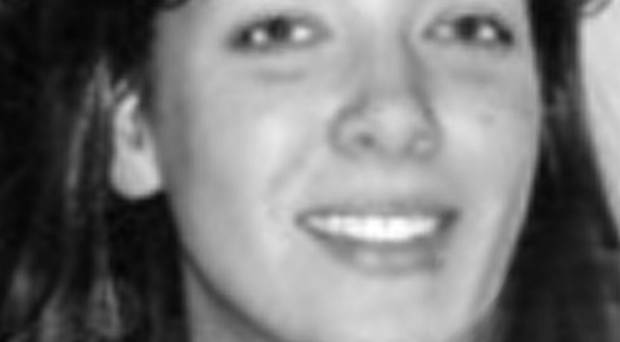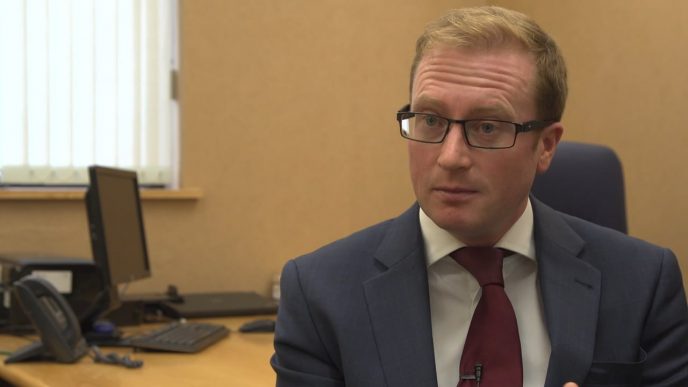
Tragic Derry woman Aine McLaughlin took her own life in 2012
A CORONER has called for a “zero-tolerance approach” to suicide as figures show more and more people are taking their own lives in the North of Ireland.
At the inquest into the death of Derry woman Aine McLaughlin, Coroner Joe McCriskin warned: “We are losing some of the best and brightest in our community.”
He was speaking on Friday on the final day of the inquest into the death of Ms McLaughlin.
The 27-year-old tragically took her own life on October 17, 2012.
Mr McCriskin said that in some English health trusts the “target figure for suicide is zero”.
“In my view that is the only acceptable figure,” he added.
“In 2012, the year of Aine’s death, she was one of 278 people who died by suicide in Northern Ireland. The most recent figures from 2015 show that has risen to 318.
“We have an increasing problem with suicide in Northern Ireland, particularly among our young people and our male population.
“Suicide has been described as a silent epidemic, and as coroner I consider action must be taken to address this growing problem.”
Mr Crisken called on all Northern Ireland’s Assembly parties to give a “clear commitment” to reducing suicide deaths when the Government is reformed.
Before her death, legal graduate Miss McLaughlin had moved to Belfast from Manchester to start a new job as a contracts officer at the Technology Centre at Queen’s University.

Coroner Joe McCriskin warns that “we are losing our best people to suicide”
On the first day of her inquest on Tuesday, Mr McCrisken criticised the lack of communication between the Belfast Trust’s acute mental health home treatment team, which Miss McLaughlin had been under the care of, and the Western Trust.
After a suicide attempt on October 1, 2012, Miss McLaughlin’s father took her back to Derry.
However, during the inquest it emerged that four medical staff from the Belfast home treatment team, as well as two GPs who treated Miss McLaughlin in Drry, had been unaware that an equivalent home treatment team existed in Derry.
Rather than having her care transferred to the Derry team, Miss McLaughlin was instead given a “contingency plan” of phone numbers for Lifeline and the Belfast home treatment team by mental health nurse Bernadette Kerr.
Ms Kerr rang Miss McLaughlin’s family GP in Derry, where she was registered as a temporary patient, but was unable to speak to the doctor and left a message with a receptionist. Ms Kerr then went on sick leave for two months.
When Dr Molloy, from the Derry practice, returned the call, no-one from the Belfast treatment team was available, nor did they later contact her.
Recording his narrative findings yesterday, Mr McCrisken noted that there had been “no formal transfer of care from the Belfast home treatment team either to a GP or Derry home treatment team.”
He said that the inquest had received information from the Western Trust to say they had put out details about the Derry home treatment team, but medical staff were unaware of its existence.
“A proper transfer of care to a Derry GP or Derry home treatment Team should have taken place,” he added. “The fact nobody involved in Aine’s care was aware of the Derry home treatment team is astonishing.
“The Belfast home treatment team had responsibility to ensure care was transferred properly and those who were caring for Aine in Derry should have been given all the information to be able to provide quality of care.”
Miss McLaughlin was discharged from the Belfast home treatment team on October 12.
“At no time, from October 12 to October 17, was a psychiatric assessment requested by her family or offered by the Belfast home treatment team or the GP in Derry,” Mr McCrisken said.
The coroner agreed Miss McLaughlin was suffering from “severe clinical depression without psychotic symptoms”, and said the antidepressant prescribed to her by Dr Margaret Kelly of the Belfast home treatment team was “appropriate”and that there were “many aspects of good practice in Aine’s care”.
Mr McCrisken said he appreciated Miss McLaughlin’s desire to be with her family in Derry, and also that this could “present the home treatment team with difficulties in terms of continuity of care”.
He added that the care system “should have been flexible to accommodate a patient who moved between health care trusts”, but that it was a “very difficult balance to achieve”.
He said it was “impossible” for him to say whether a “proper handover” or further assessment of Aine’s condition would have resulted in a different outcome, although further assessment should have been offered by the Belfast home treatment team.
“I can’t say if it would have been accepted or have changed the outcome,” he continued.
“Home treatment teams provide good support to people suffering depression and mental health problems, and this was the case with Aine. There’s a good model, good systems to help people.
“No system is perfect and all systems require constant review and evaluation to ensure effectiveness.
“On the basis of the evidence, I am satisfied that Aine intended to take her own life.
“I’m not satisfied that the balance of her mind was disturbed.”
A McLaughlin family statement said: “All we were looking for was a recognition that things could and should have been done differently and for improvements to be made and for lessons to be learned in the hope that further tragic deaths in similar circumstances can be avoided.”





